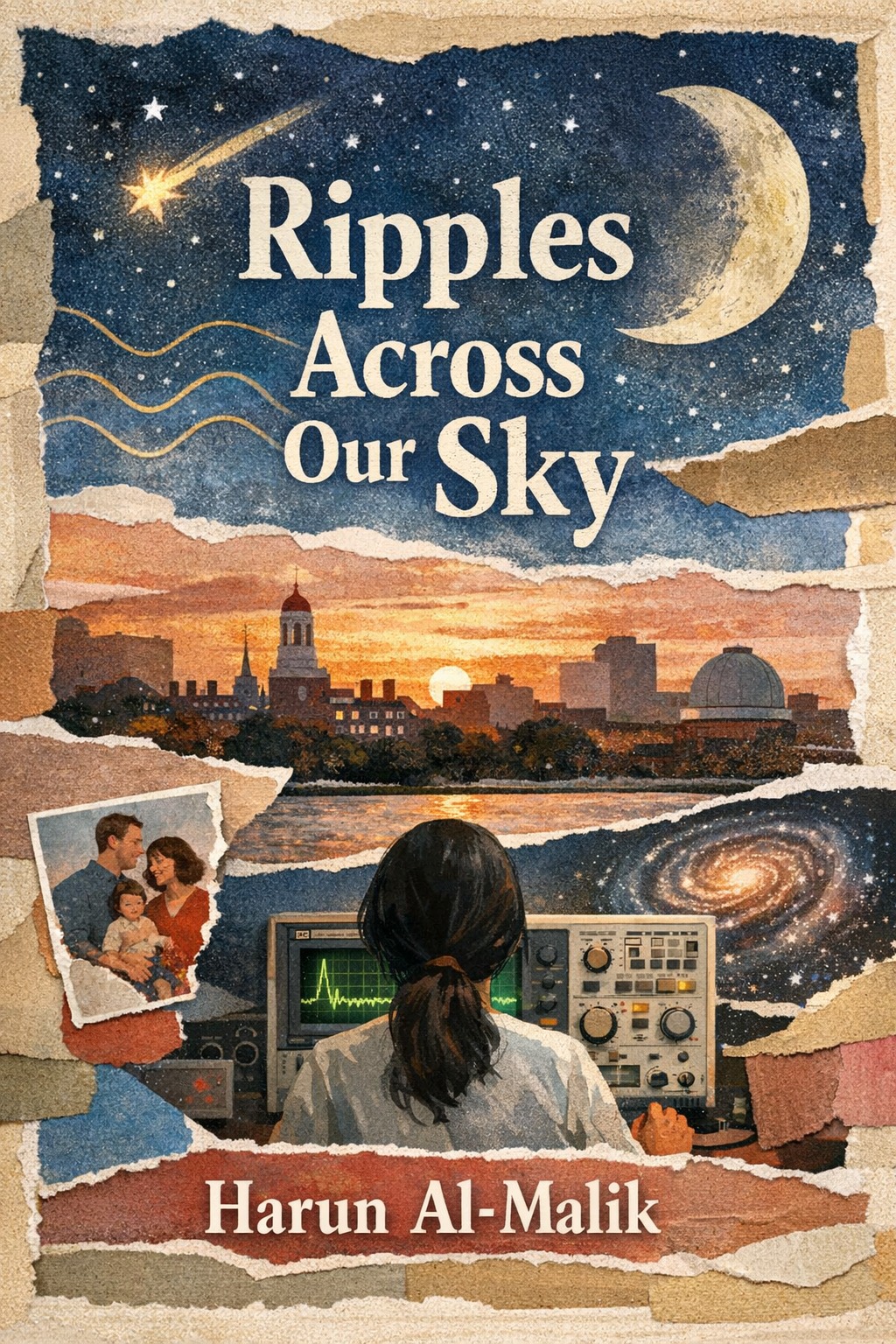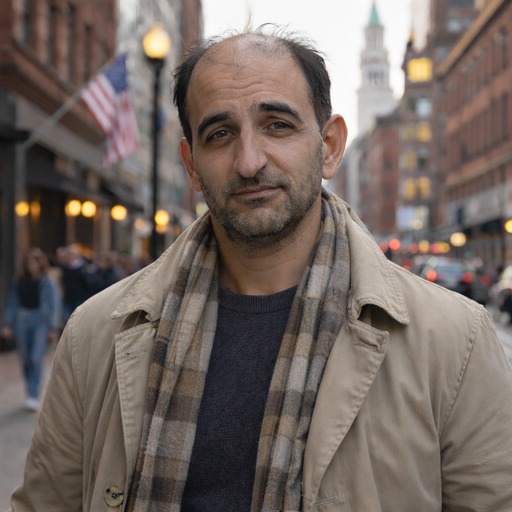Best for readers who like contemporary fiction with light science instrumentation and immigrant-family dynamics; note cognitive decline, off-page lab accident, storm damage, and workplace pressure, with minimal on-page violence and a muted romance.
A contemporary novel of love, disaster, and a touch of the inexplicable, Ripples Across Our Sky follows a family whose private grief collides with the quiet music of the cosmos.
In Cambridge, Massachusetts, Leila Haddad spends her nights parsing atmospheric noise on a borrowed HP 3585A spectrum analyzer and her days grading problem sets she never wanted to assign. When her late uncle's Gloucester radio shack is cleared out, she inherits a shoebox of cassette tapes, a duct-taped Sangean shortwave radio, and a hand-drawn star atlas annotated in cramped Arabic and ink-smudged English. The tapes hum with a recurring tremor that shouldn't be there, a pulse threading through storms and seasons like a heartbeat. With the help of her partner June Park, a coder who moonlights at a Porter Square tea shop, Leila turns the waveforms into spectrograms—and finds they align with small family events, right down to the day her father burned the baklava at Sanaa Sweets in Revere.
As the patterns point toward MIT's Haystack Observatory in Westford and a long-quiet lab fire from 1998, Leila uncovers evidence that a celebrated faculty mentor and a defense contractor buried inconvenient data about sonar interference along the Cape. The scandal casts a long shadow over her uncle's obsessive notebooks and the immigrant gamble that brought her parents to New England. Meanwhile, her father Farid begins to drift, losing words as steadily as the ocean takes the shoreline, and her brother Karim holes up in a creaking Cape Ann rental stocked with emergency candles and unsent letters.
When a late-season nor'easter barrels up the coast and the power fails from Dorchester to Cape Ann, the ripples on the tapes grow wild and insistent. Leila must decide what to publish and what to protect, and whether love is something you prove in peer review or in the backseat of a battered red Schwinn pedaling home through floodwater. To keep her family from splintering—and to keep the truth from being buried again—she follows the signal through salt, static, and memory, learning that some constellations are drawn not on the sky but across the people we refuse to let go.

